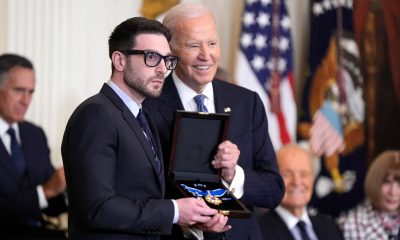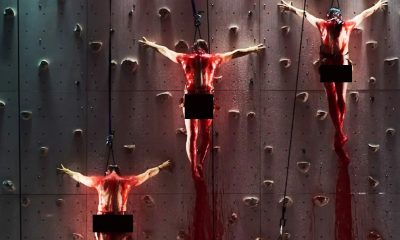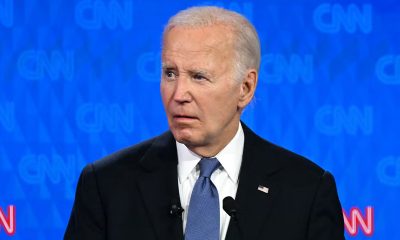Latest News
The Economist: A Powerful Elite IS Secretly Running Things…but You’re Still Crazy
A rather strange article recently appeared in the Economist admitting to a global elite deciding issues in secret. The article still calls those questioning those methods “conspiracy theorists” and makes them sound crazy…even though they were right all along. Just to refresh everybody’s memories, here’s the definition of “conspiracy”.
“a secret agreement between two or more people to perform an unlawful act”
If we look at the Bilderberg Group, it is definitely made of secret agreements between two or more people. Are the acts discussed unlawful? They are surely undemocratic – little to no elected officials attend to those meetings. In a democracy, elected officials have the mandate to decide public policies. Not CEO’s of corporations. I am only stating the obvious here, but the obvious does not seem obvious anymore.
Here’s the article from the Economist (whose editor attends the Bilderberg group
“YOU can do nothing against a conspiracy theory,” sighs Etienne Davignon. He sits in a lofty office with a stupendous view over Brussels, puffing his pipe. He is an aristocrat, a former vice-president of the European Commission and a man who has sat on several corporate boards, but that is not why some people consider him too powerful. He presides over the Bilderberg group, an evil conspiracy bent on world domination. At least, that is what numerous websites allege; also that it has ties to al-Qaeda, is hiding the cure for cancer and wishes to merge the United States with Mexico.
In reality, Bilderberg is an annual conference for a few dozen of the world’s most influential people. Last year Bill Gates and Larry Summers hobnobbed with the chairman of Deutsche Bank, the boss of Shell, the head of the World Food Programme and the prime minister of Spain. One or two journalists are invited each year, on condition that they abstain from writing about it. (Full disclosure: the editor of The Economist sometimes attends.)
Because the meetings are off the record, they are catnip to conspiracy theorists. But the attraction for participants is obvious. They can speak candidly, says Mr Davignon, without worrying how their words might play in tomorrow’s headlines. So they find out what other influential people really think. Big ideas are debated frankly. Mr Davignon credits the meetings for helping to lay the groundwork for creating the euro. He recalls strong disagreement over Iraq: some participants favoured the invasion in 2003, some opposed it and some wanted it done differently. Last year the debate was about Europe’s fiscal problems, and whether the euro would survive.
The world is a complicated place, with oceans of new information sloshing around. To run a multinational organisation, it helps if you have a rough idea of what is going on. It also helps to be on first-name terms with other globocrats. So the cosmopolitan elite—international financiers, bureaucrats, charity bosses and thinkers—constantly meet and talk. They flock to elite gatherings such as the World Economic Forum at Davos, the Trilateral Commission and the Boao meeting in China. They form clubs. Ethnic Indian entrepreneurs around the world join TiE (The Indus Enterprise). Movers and shakers in New York and Washington join the Council on Foreign Relations, where they can listen to the president of Turkey one week and the chief executive of Intel the next. The world’s richest man, Carlos Slim, a Mexican telecoms tycoon, hosts an annual gathering of Latin American billionaires who cultivate each other while ostensibly discussing regional poverty.
Davos is perhaps the glitziest of these globocratic gatherings. Hundreds of big wheels descend on the Swiss ski resort each year. The lectures are interesting, but the big draw is the chance to talk to other powerful people in the corridors. Such chats sometimes yield results. In 1988 the prime ministers of Turkey and Greece met at Davos and signed a declaration that may have averted a war. In 1994 Shimon Peres, then Israel’s foreign minister, and Yasser Arafat struck a deal over Gaza and Jericho. In 2003 Jack Straw, Britain’s foreign secretary, had an informal meeting in his hotel suite with the president of Iran, a country with which Britain had no diplomatic ties. But Davos is hardly a secretive institution: it is crawling with journalists. The other globocratic shindigs are opening up, too. Even Bilderberg has recently started publishing lists of participants on its website.
Some American organisations, such as foreign-policy think-tanks, are also well placed to exert global influence. The Carnegie Endowment for International Peace, for example, has established itself as one of the most globally trusted talking-shops, with offices in Beijing, Beirut, Brussels and Moscow, as well as Washington—though it has yet to fulfil the vision of its founder, Andrew Carnegie, who wanted it to abolish war. The key to wielding influence, says Jessica Mathews, Carnegie’s president, is “very simple. You hire the best people.”
In countries where think-tanks are subservient to the state, such as China and Russia, foreign outfits such as Carnegie enjoy a reputation for independence. If they can back this up with useful knowledge, they can sway policy. For example, Carnegie scholars advised the authors of Russia’s post-Soviet constitution. And when relations between American and Russia grew frosty under President George W. Bush, Carnegie’s Moscow office helped keep a line of communication open between the two governments.
Such meetings are “an important part of the story of the superclass”, says Mr Rothkopf, the author of the eponymous book. What they offer is access to “some of the world’s most sequestered and elusive leaders”. As such, they are one of “the informal mechanisms of [global] power”.
Some globocrats think the importance of forums like Davos is overstated. Howard Stringer, the boss of Sony, is the kind of person you would expect to relish such gatherings. Welsh by birth, American by citizenship, he took over Japan’s most admired company in 2005, when it was in serious trouble, and turned it around in the face of immense cultural obstacles. He says he has enjoyed trips to Davos in the past but will not attend this year. He can learn more, he says, by listening to his 167,000 employees.
On the face of it there seems much to be said for the world’s shakers and movers meeting and talking frequently. Yet for all their tireless information-swapping, globocrats were caught napping by the financial crisis. Their networks of contacts did throw up a few warnings, but not enough to prompt timely action.
Jim Chanos, a hedge-fund manager who made his first fortune betting that Enron was overvalued, warned the G8 finance ministers in April 2007 that banks and insurance firms were heading for trouble. He made another fortune when bank shares crashed, but is still furious that his warnings were politely ignored. He thinks it an outrage that several senior regulators from that period are still in positions of power. And he accuses some bankers of “a wholesale looting of the system” by paying themselves bonuses based on what they must have known were phantom profits. He thinks they should be prosecuted.
Globocrats failed to avert the crisis, but they rallied once it struck. Rich-country governments acted in concert to prop up banks with taxpayers’ money. In America the response was led by a well-connected trio: Hank Paulson, George Bush junior’s treasury secretary and a former boss of Goldman Sachs; Tim Geithner, Barack Obama’s treasury secretary and a former boss of the New York Federal Reserve, as well as a veteran of the IMF, the Council on Foreign Relations and Kissinger Associates; and Ben Bernanke, of Harvard, MIT, Stanford, Princeton and the Bush White House, who is now chairman of the Federal Reserve. The bail-outs were unpopular everywhere, but may have prevented the world’s banking system from imploding.
Governments are now trying to craft rules to prevent a recurrence. Lots of people have offered advice. Among the weightier contributions was a report from the Group of Thirty (G30), an informal collection of past and present central-bank governors. The Volcker Report, advocating a central clearing mechanism for derivatives trading and curbs on proprietary trading by banks, helped shape America’s Dodd-Frank financial-reform bill. The G30 is influential because it consists of people with experience of putting policies into practice, says Stuart Mackintosh, its director. So when it makes recommendations, they can be turned into action, he adds.”
– Source: The Economist
According to the article : a cosmopolitan elite—international financiers, bureaucrats, charity bosses and thinkers—constantly meet and talk. They flock to elite gatherings such as the World Economic Forum at Davos, the Trilateral Commission and the Boao meeting in China. They form clubs. Still, if you question this, you are a tagged as a “conspiracy theorist” and therefore a nut job.
To desire open, public debates between democratically elected officials is simply crazy. Either you accept undemocratic proceedings or you’re crazy. Are you crazy? Because if you have any concerns or opinions regarding what is happening, they are surely not rational. They are crazy-conspiracy-theorist-ramblings. That’s the underlying message of the article. I love those kinds of articles.
Thank you Bilderberg-owned The Economist.
- Lindsey Horvath, Celtic Goddess Brigid and the Los Angeles fires.
- Denzel Washington for Herb Ritts #1 (circa 1990)
- Denzel Washington for Herb Ritts #2 (circa 1990)
- Denzel Washington for Herb Ritts #3 (circa 1990)
- The war on children wages on … modern day Marquis de Sade.
- NBC was Harvey Weinstein’s accomplice
- No self awareness detected
Get an e-mail notification as soon as a new article is published on The Vigilant Citizen.
-

 Pics of the Month3 months ago
Pics of the Month3 months agoSymbolic Pics of the Month 10/24
-

 Movies and TV1 month ago
Movies and TV1 month agoAdrenochrome and Ritual Humiliation: The True Meaning of the Movie “The Substance”
-

 Movies and TV3 months ago
Movies and TV3 months agoAn In-Depth Look at the Hidden Meaning and Symbolism in “Blink Twice”
-

 Latest News2 months ago
Latest News2 months agoKamala’s Campaign Was Objectively the Worst in Recent History
-
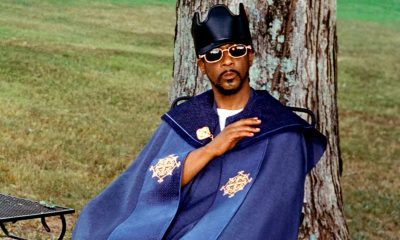
 Pics of the Month1 month ago
Pics of the Month1 month agoSymbolic Pics of the Month 12/24
-

 Latest News2 months ago
Latest News2 months agoWas the Jake Paul vs Mike Tyson Fight a Humiliation Ritual?
-

 Latest News2 months ago
Latest News2 months agoAn “Urban Opera” in Toulouse Using Massive Machines is Denounced as a Satanic Ritual
-
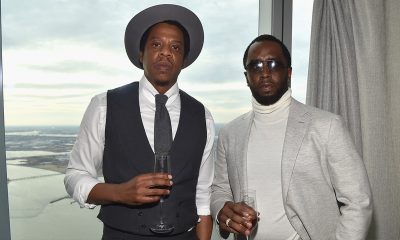
 Latest News1 month ago
Latest News1 month agoIt Was Bound to Happen: Jay-Z Accused of Abusing a 13-Year-Old Girl


